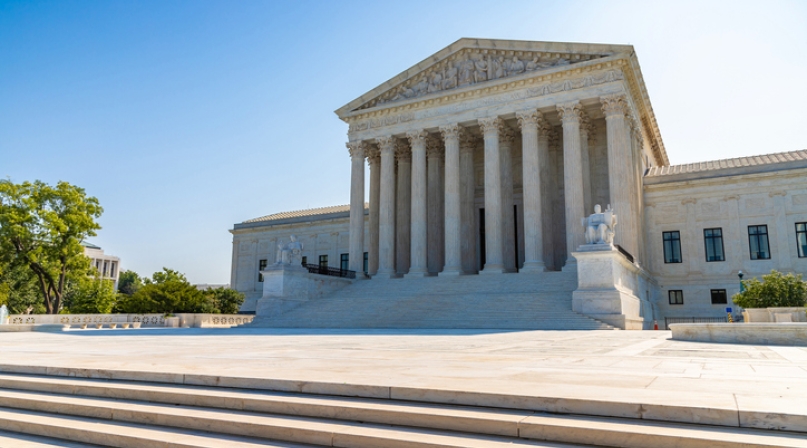Supreme Court roundup: The top five decisions impacting county governments in the 2022-2023 term
Author
Upcoming Events
Related News

Key Takeaways
On June 30, the U.S. Supreme Court issued its final decisions of the 2022–2023 term. The Court’s 57 rulings touched topics ranging from free speech, redistricting, the environment, student loans, immigration and more. Through our partnership with the Local Government Legal Center, NACo submitted amicus briefs to advocate for county interests in several cases before the Court. Read on to learn about the term’s top five rulings impacting county governments:
1. Moore v. Harper | County elections administration
The Court rejected, 6-3, the argument that state legislatures have sole authority over federal elections, preserving county flexibility and authority in local elections administration.
2. Sackett v. EPA | Waters of the United States (WOTUS)
The Court unanimously agreed the wetlands in question do not fall under the definition of Waters of the United States (WOTUS). The majority ruled, 5-4, in favor of a new, narrower definition of WOTUS limiting the types of waters subject to federal jurisdiction under the Clean Water Act (CWA). While the decision restricts the definition of WOTUS, counties need further clarity from our federal partners on how future CWA regulations will impact county-owned water infrastructure.
3. Tyler v. Hennepin County | Property tax forfeitures
The Court prohibited, 9-0, local governments from keeping excess profits from the sale of tax-forfeited properties, which could impact property tax revenue for counties in at least 21 states. However, the decision protects important county enforcement mechanisms for property tax delinquency such as fines, interest and property seizure.
4. HHC of Marion County v. Talevski | County-owned nursing homes
The Court affirmed, 7-2, that private individuals may sue state and local governments for civil rights damages under programs authorized by the federal spending clause, including the Federal Nursing Home Reform Act. As a result, counties operating nursing homes with Medicaid and Medicare dollars or administering other federal spending clause programs may see an increase in costly lawsuits.
5. Groff v. DeJoy | County employment law
The Court created, 9-0, a more rigorous standard for all employers, including county governments, to deny religious accommodation requests from workers. Counties will need to revisit employment policies and procedures to ensure they comply with the new requirement that they make religious accommodations unless doing so would impose a “substantial” cost.
Attachments
Related News

U.S. House passes final minibus funding package
Congress introduced the final FY 2026 Appropriations package, including key county priorities related to transportation, housing, health, emergency management and public safety

U.S. Congress passes minibus funding package
U.S. House and Senate appropriators passed a “minibus” appropriations package containing Fiscal Year (FY) 2025 Interior-Environment, Commerce-Justice-Science and Energy-Water spending bills.

Federal district court issues ruling preventing the federal government from imposing immigration compliance mandates on grant recipients
On November 4, a federal judge in Rhode Island ruled that the U.S. Department of Transportation cannot condition federal grant funding on a recipient’s cooperation with federal immigration enforcement efforts.
